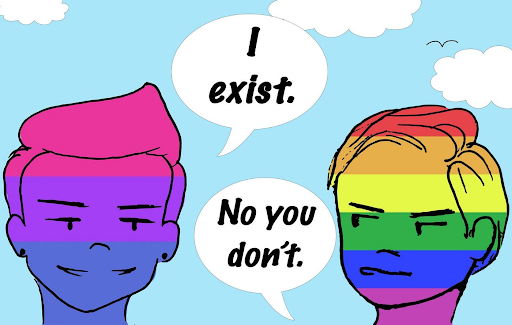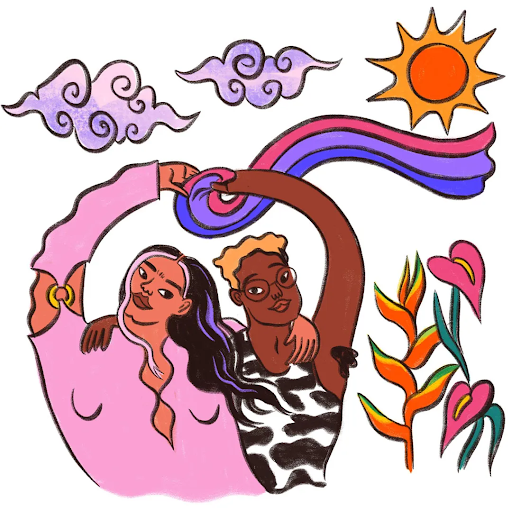Breaking Boundaries: Understanding Bisexuality in a Binary World
In a world where societal norms often dictate who we should love and how we should identify, individuals whose romantic and sexual attractions surpass conventional boundaries face unique challenges. Bisexual people, in particular, struggle with pressures to conform to binary definitions of sexuality. This blog aims to provide support and guidance for those navigating the journey of coming out as bisexual and embracing their authentic selves.

Understanding Bisexuality
Before starting your journey of coming out, it’s essential to understand and accept your own bisexuality. Bisexuality is a valid sexual orientation, characterized by attractions that cut across boundaries of sex and gender. Reject external pressures and stereotypes, and recognize that your identity is yours alone to define.
Tips for Coming Out to Yourself
Before embarking on the journey of self-acceptance and coming out as bisexual, it’s important to recognize and embrace your authentic identity. Here are some tips to guide you along the way:
- Ignore external pressures and stereotypes: Your identity belongs to you alone, and it’s essential to disregard societal expectations and definitions of sexuality.
- Embrace your journey: Whether you’ve previously come out as another identity or have never been in a romantic relationship, know that it’s okay to explore and discover your sexuality at any stage of life.
- Seek support: Feeling scared, confused, or uncertain is normal. Reach out to trusted friends, online communities, or LGBTQ+ organizations for guidance and support during this process.
Coming out as bisexual can be a liberating and empowering experience, improving your life in various ways also carries risks and challenges. Here are some potential risks and benefits to consider:
Benefits of Coming Out | Risks of Coming Out |
Live an open and whole life. Develop closer, more genuine relationships. Build self-esteem from being known and loved for your whole self. Reduce the stress of hiding your identity. Connect with others who are bisexual and become a role model for others. Help dispel myths and stereotypes about bisexuality. Learn about the rich history of the bisexual community. | Risk of losing current romantic relationships . Potential for family, friends, or coworkers to react negatively. Not everyone will be understanding or accepting. Possibility of experiencing harassment or discrimination. Risk to physical safety, job security, or housing stability. Potential rejection and homelessness for LGBTQ+ youth. |

Making a Plan to Come Out
Before coming out to others, it’s important to carefully plan and prepare for the process. Consider the following steps:
- Prepare what you want to say and organize your thoughts.
- Choose supportive individuals to disclose first.
- Consider the timing and mood of those you plan to come out to.
- Be well-informed and open to answering questions.
- Prioritize safety and well-being when deciding whom to come out to.
Coming Out to Your Spouse or Partner
When coming out to your spouse or partner as bisexual, it’s essential to prepare for potential challenges and stereotypes. Practice open and honest communication, explaining what your bisexuality means to you and how it may impact your relationship. Prioritize safety and well-being in your relationship dynamics, understanding that your partner may need time to process and adjust to this new aspect of your identity.
After Coming Out
After coming out as bisexual, understand that the process is continuous and may involve correcting assumptions and stereotypes. Prioritize your safety and well-being in all aspects of your life, recognizing that living authentically empowers yourself and others to challenge societal norms and foster understanding.
Conclusion
Coming out as bisexual is a deeply personal journey, marked by self-discovery, courage, and resilience. Embrace your authentic self, seek support from trusted individuals and communities, and prioritize your safety and well-being throughout the process. By living openly and unapologetically, you empower yourself and others to challenge stereotypes, foster understanding, and build a more inclusive society. Remember, you are valid, worthy of love, and deserving of acceptance, no matter where you are on your journey of self-discovery.
Author

